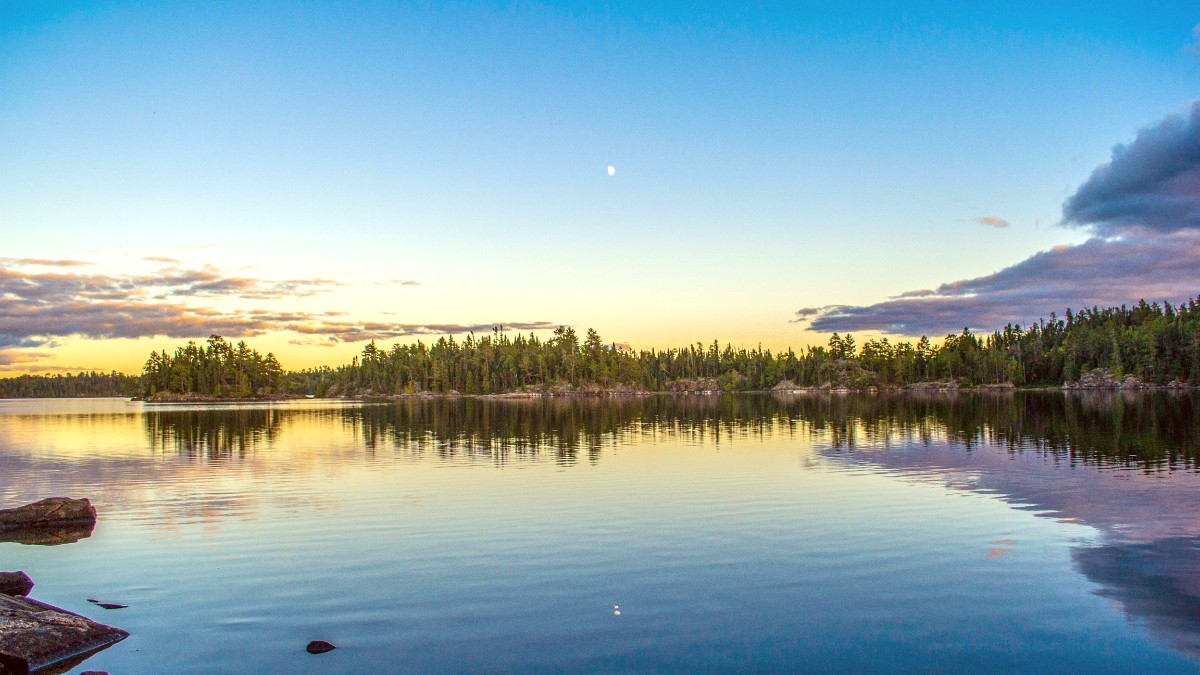
Minnesota, USA
Over 2,000 designated sites, each with a steel fire grate and a cleared area for tents.
A pit latrine, an outdoor toilet, often a wooden box over a hole, is a short walk from the main camp area.
Campsites are first-come, first-served once you are inside the wilderness at your reserved entry point.
No developed facilities, no running water, electricity, showers, or garbage service.
Standard rooms with private bathrooms, beds, sometimes Wi-Fi. Practical for overnight stays.
Privately owned resorts with cabins or lodge rooms, some with kitchens, docks, and resort amenities.
Homes, cabins, or apartments through platforms like Vrbo or Booking.com.
Private and state park campgrounds with varied amenities, including showers and electrical hookups.
The main towns serving the BWCAW each possess distinct characteristics.
All gateway towns generally have low crime rates. Main safety concerns relate to wilderness hazards, not urban crime.
Select your gateway town based on your BWCAW entry point and interests. Grand Marais suits Gunflint Trail access and North Shore exploration. Ely suits central BWCAW access.
Effective booking strategies help you secure your required permits and preferred lodging, especially during peak seasons.
Book your BWCAW permit as soon as your desired date becomes available on Recreation.gov (6 months out). This period experiences the most competition for bookings.
Consider looking into IHG Hotels for potential options in larger surrounding areas for pre/post-trip stays.
For unique longer stays, explore TrustedHousesitters for house or pet sitting exchanges.
Choosing where to stay before and after your BWCAW trip frames your comfort and preparation.
Price: $20 - $40 USD per night
Price: $80 - $150 USD per night
Price: $150 - $400+ USD per night
Vacation rentals (cabins, homes) are the top option for multiple days or weeks. They offer kitchens and more living space, a "home away from home" atmosphere.
Many resorts and cabins cater to families with multiple bedrooms, kitchens, and recreational activities. State park campgrounds are also excellent family choices.
Budget motels or B&Bs offer a comfortable stay. Some outfitters also feature bunkhouse options, a budget-friendly way to connect with other paddlers.
Consider historic lodges or resorts that have operated for decades, offering a glimpse into the region's past. Outfitters themselves have long histories.
Grand Marais Campground & RV Park
If staying at an outfitter's bunkhouse the night before your trip, ask about their morning routines. They often have early breakfasts to get groups out on the water promptly.
Resorts and cabins often come with lake access and may include amenities like boat rentals (motorized boats on non-BWCAW lakes).
Hotels and motels typically offer amenities like private bathrooms, comfortable beds, and sometimes Wi-Fi for your convenience.
Your choice of gateway town impacts proximity to your BWCAW entry point and other regional attractions, like the North Shore of Lake Superior.
Quality for cabin and resort rentals can vary greatly. Research and read reviews before booking to match your expectations.
Many resorts and cabins, especially during peak season, have minimum stay requirements, often a week.
The "Canoe Capital of the World," ideal for direct outfitting and access to central and western BWCAW entry points.
A picturesque arts community on Lake Superior, a gateway to eastern BWCAW entry points via the Gunflint Trail.
A quieter area with historical mining interest, serving western BWCAW entry points, with fewer amenities.